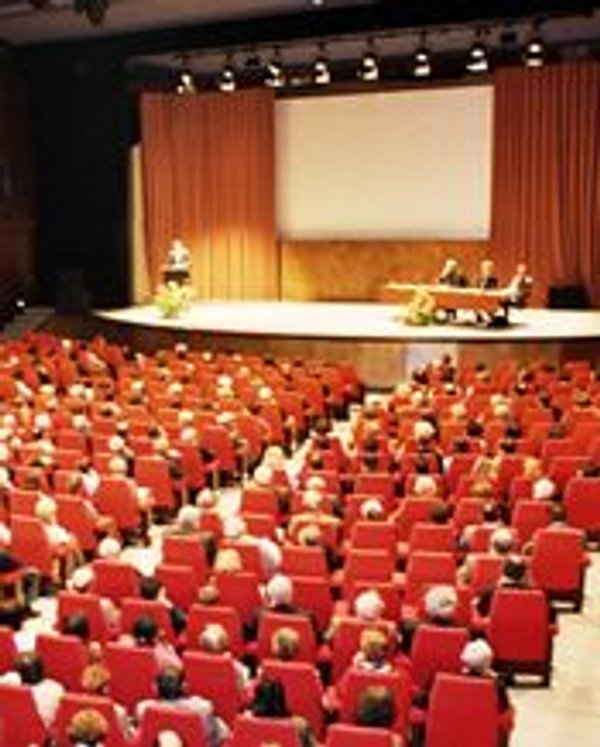The first presentation was given by François Gondrand, author of a biography of Blessed Josemaria Escriva. Mr. Gondrand described successive stages of the life of Opus Dei's founder and the relation of these stages to his spiritual message, which was thereby tied to its historic and theological context.
Mr. Gondrand, using some personal recollections of his meetings with Josemaria Escriva after 1960, emphasized particularly the importance of ordinary life for the founder of Opus Dei. This could be converted into something heroic if one succeeded in making one’s work an occasion for human perfection, for the exercise of virtues, and for personal holiness.
Noted theologian Bishop André-Mutien Léonard gave the second presentation. Bishop Léonard, a former member of the International Theological Commission and a professor at the Catholic University of Louvain, analyzed the concept of “Christian materialism” in Blessed Josemaria's thought.

The Bishop of Namur said that in the “Christian materialism” of the founder of Opus Dei, the most demanding spiritual life was lived in harmonious continuity with an active presence in the world, while maintaining perfect respect for the sphere proper to each dimension. This continuity showed itself in the ease with which Blessed Josemaria's preaching moved from the divine to the human and back again, and also in the fact that he took human work as seriously as the spiritual life. He thus avoided the two opposed extremes of a disincarnated spiritualism, with a mistaken Manichaean vision of created matter, and a shallow materialism, in which reference to Christ or to Christian values is a simple ornament devoid of meaning.
Those taking part in the conference were also able to view the screening of two documentaries. In the morning there was a bilingual one in French and Dutch about the life of Josemaria Escriva, from his birth until his death in Rome in 1975. In the afternoon there was another one in French describing the spirit of Opus Dei and the social commitment of its members, illustrated by three initiatives being carried out in the United States, Uruguay and the Congo.
